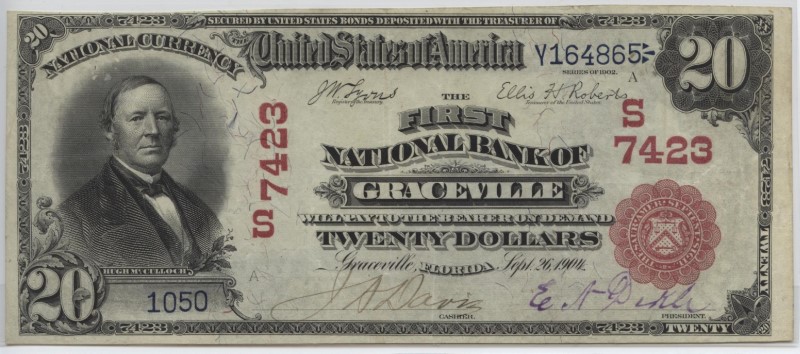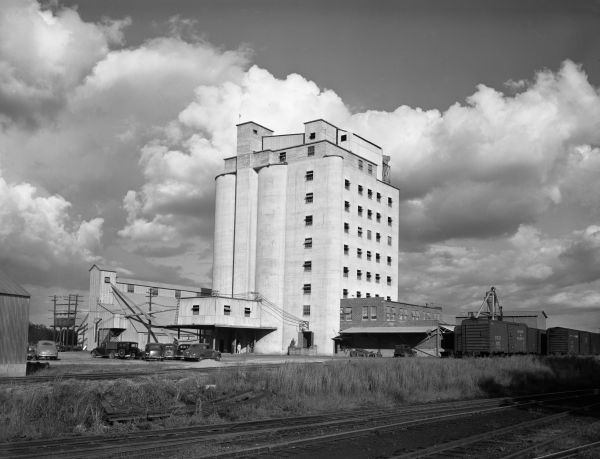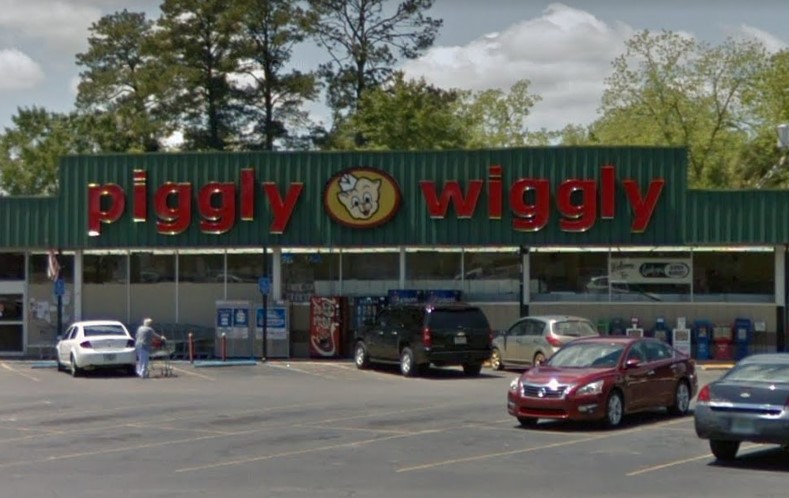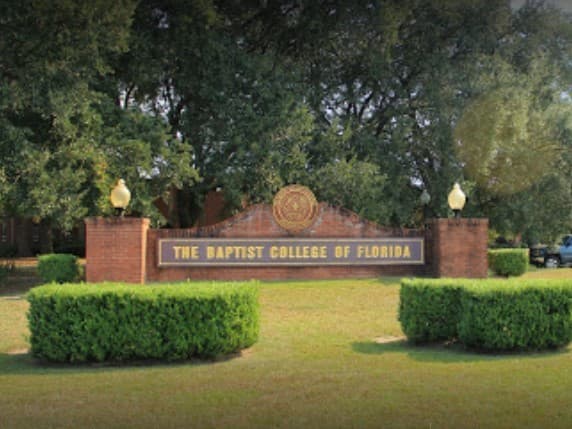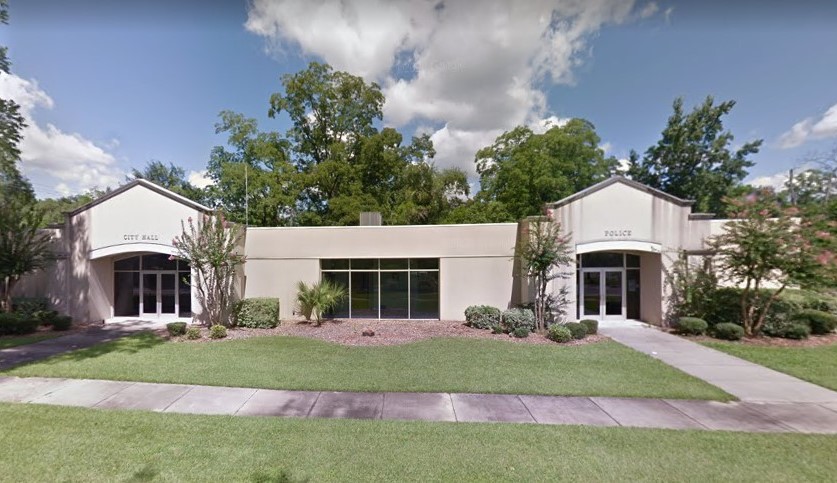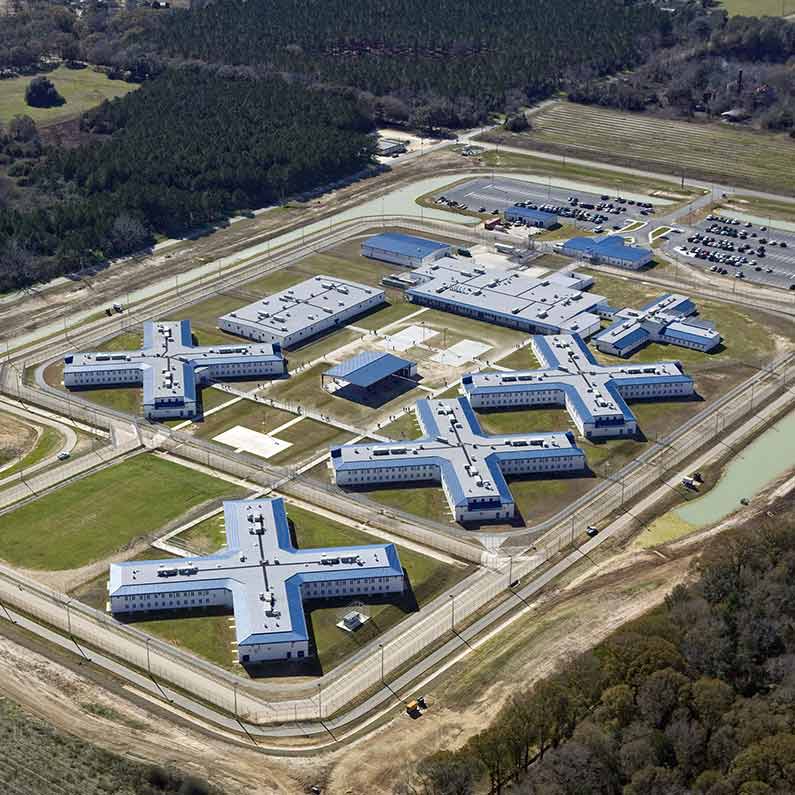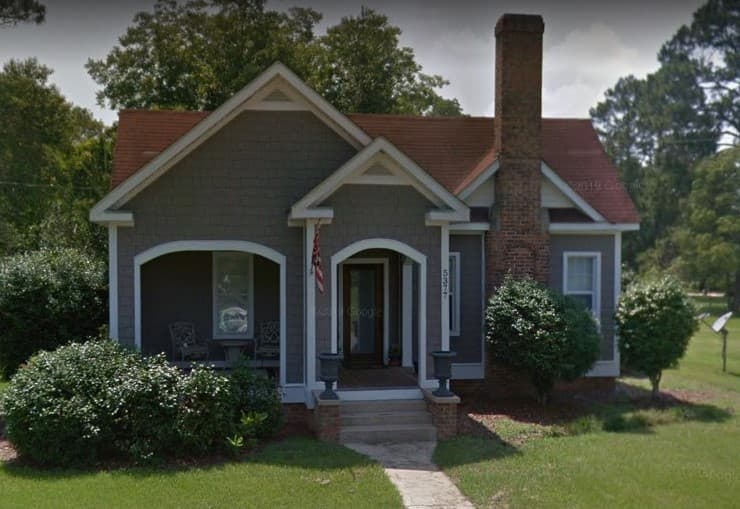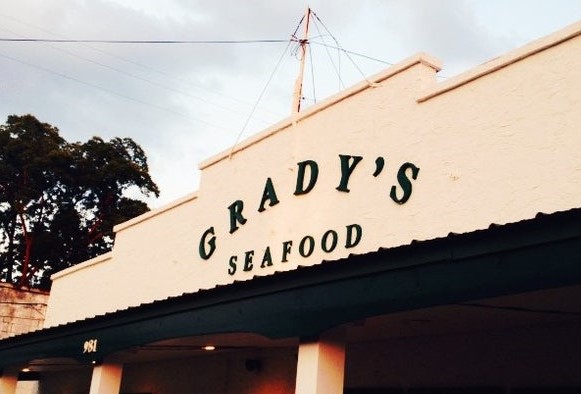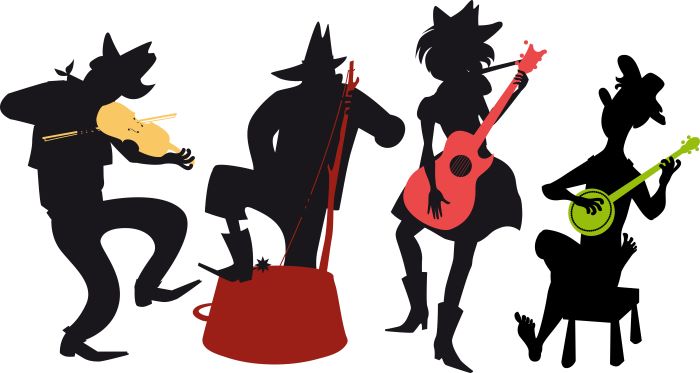- Home
- Florida Towns
- Graceville
GRACEVILLE, FLORIDA
By Mike Miller Updated January 25, 2025
Graceville, Florida Things To Do, Lodging, Dining, & Real Estate At End Of Article
Graceville, Florida is in the Panhandle a little more than one mile south of the Alabama state line.
The heart of the small city is located at the intersection of Florida State Roads 2 and 77. The population is about 2,500.
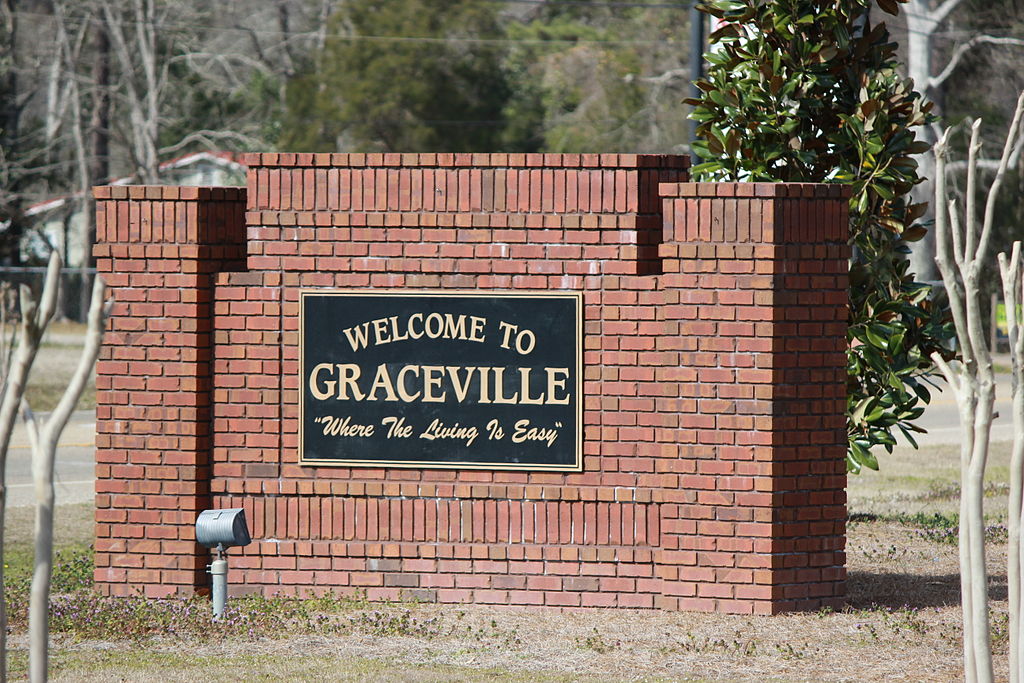 Entrance Sign Graceville, Florida
Entrance Sign Graceville, FloridaThe old saying in Florida is that "North Florida is Southern" and "South Florida is Northern," a statement that describes the cultural characteristics of a place.
Graceville is definitely a small southern city and the nearest "big" city is Dothan, Alabama, some 22 miles to the north.
Graceville is 90 miles away from Florida's capital, Tallahassee.
GRACEVILLE, FLORIDA HISTORY
Graceville is in the far northern end of Jackson County, one of Florida's oldest. The county was created in 1822 from part of Escambia County.
The new county had almost zero population, but was developed over the years as part of the southern cotton plantation belt.
There were large numbers of black slaves in Jackson County working the plantations.
The county became infamous after the Civil War as the scene of the Jackson County War.
This was an extremely violent period when Confederate veterans and their sympathizers attacked freed slaves.
The area that is now Graceville was settled after the Civil War by southerners fleeing the devastation caused by the war in Alabama, Georgia and the other southern states.
Henry Grace was an early settler for whom the town was named, and Graceville was incorporated in 1902 about the same time as the railroad came to town.
The railroad opened markets to the north and the town became prosperous.
The early economy of Graceville was based on cotton until the boll weevil came along from Mexico and destroyed the crops.
Luckily, the town soon found another way to resurrect their economy: peanuts.
Peanuts became the dominant crop in Graceville and surrounding Jackson County. The county was one of the largest peanut growing regions in the world.
Naval stores such as turpentine, along with lumber, also became important industries.
GRACEVILLE, FLORIDA TODAY
Graceville has the comfortable laid back feeling of many small southern towns in North Florida, South Georgia, and Southern Alabama.
The late Florida writer Al Burt nicknamed this part of the state as Florabama, and the name fits.
A sure sign of being in a southern town is when the main grocery store is a Piggly Wiggly.
You see these stores in the small towns of Alabama and Georgia, but only a few in Florida, and those are in the Panhandle.
The one in Graceville has a cafeteria where I enjoyed a great lunch.
An institution of higher learning in Graceville is The Baptist College of Florida.
It was originally established to train Baptist ministers, but now offers degrees in business, education, counseling, music, and theology.
Graceville also has an elementary school and a high school.
A modern City Hall and Police Station are located downtown, along with typical offices for doctors, lawyers, and other professionals.
Peanuts and lumber are still important pieces of the Graceville economy, but there are other places that contribute also.
A large employer in this town is the Graceville Correctional and Rehabilitation Center. It is operated by the State of Florida.
Another employer is the Rex Lumber County which makes lumber products from the vast wooded regions of the Florida panhandle.
Graceville has many quiet tree shaded residential streets. Homes range from the very expensive to the rundown old homes of an earlier era. There is something for everybody.
A popular restaurant in downtown Graceville is Grady's Seafood. They are especially noted for their delicious shrimp.
The restaurant is named for its founder, Grady "Pop" Spears who developed his cooking skills in the Merchant Marine in the years during World War Two.
Another great place to sit down and eat or grab a lunch to go is the local Piggly Wiggly grocery store.
THINGS TO DO NEAR GRACEVILLE, FLORIDA
Morrison Springs: Immerse yourself in the crystal-clear waters of Morrison Springs, a natural spring and recreational area that offers swimming, snorkeling, and scuba diving opportunities. With its picturesque surroundings and underwater caves, this hidden gem provides a perfect escape for nature lovers and adventure seekers.
Falling Waters State Park: Explore the captivating beauty of Falling Waters State Park, home to Florida's tallest waterfall. Take a scenic hike through the park's lush trails, witness the impressive 73-foot waterfall plunging into a sinkhole, and enjoy picnicking, fishing, and birdwatching in this tranquil natural setting.
Chipola River Paddling Trail: Embark on an adventurous canoe or kayak trip along the Chipola River Paddling Trail. As you paddle through the serene waters, you'll be surrounded by stunning landscapes, diverse wildlife, and the opportunity to observe the unique ecosystem of this picturesque river.
Florida Caverns State Park: Delve into the mysterious underground world of Florida Caverns State Park, where you can explore fascinating limestone caves and caverns. Take a guided tour to witness impressive stalactite formations, learn about the geology and history of the caves, and enjoy other recreational activities like hiking, camping, and fishing within the park.
INFORMATION ABOUT GRACEVILLE, FLORIDA
Graceville Restaurants
Graceville Motels/Inns
Graceville Real Estate
GRACEVILLE, FLORIDA INTERACTIVE GOOGLE MAP
Our Facebook page has more than 130,800 followers who love off the beaten path Florida: towns, tourist attractions, maps, lodging, food, festivals, scenic road trips, day trips, history, culture, nostalgia, and more.
By Mike Miller, Copyright 2009-2025
Florida-Back-Roads-Travel.com
Florida Back Roads Travel is not affiliated with or endorsed by Backroads, a California-based tour operator which arranges and conducts travel programs throughout the world.
